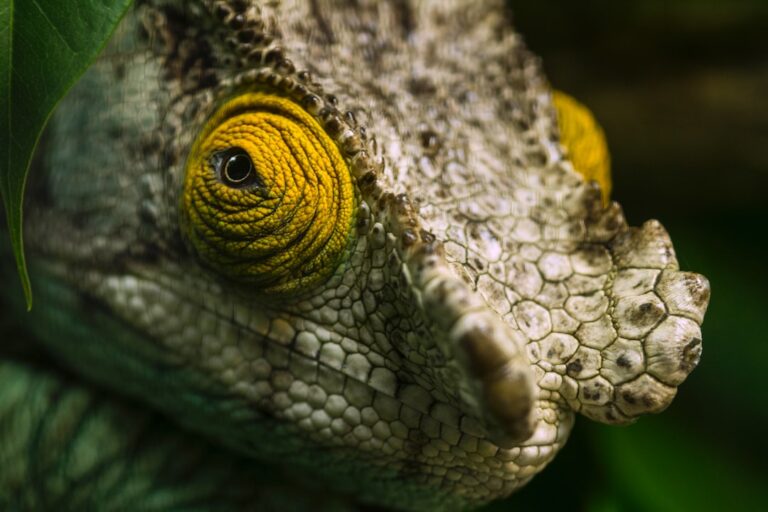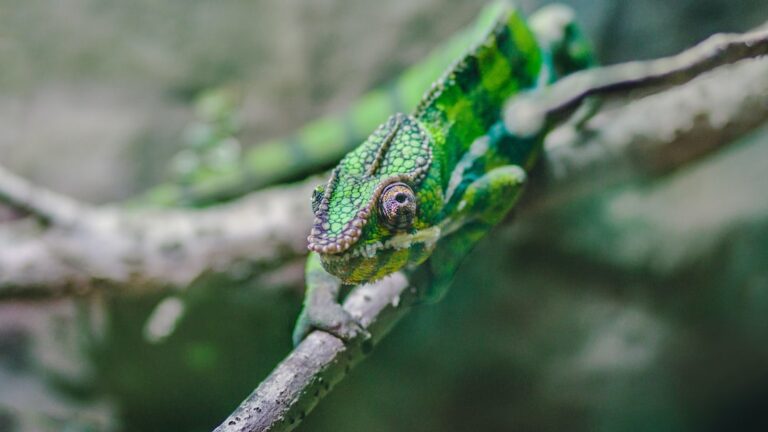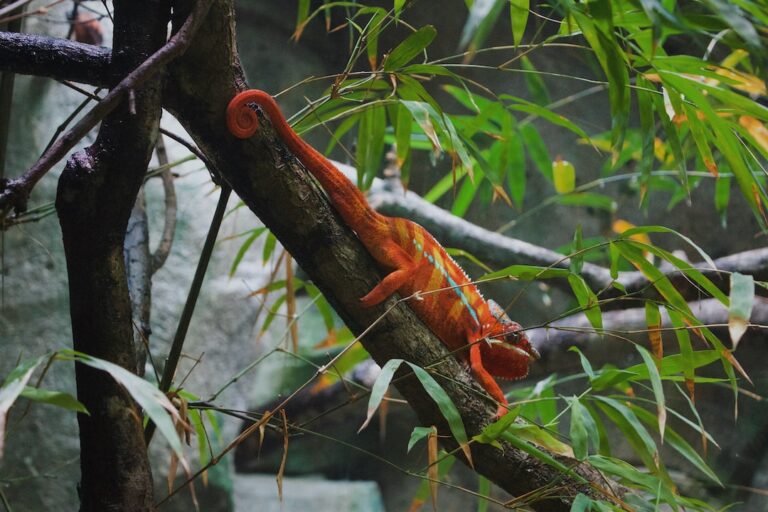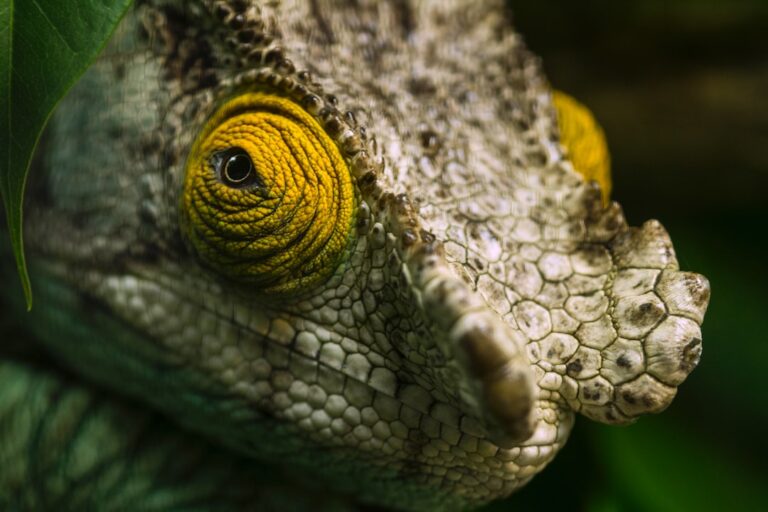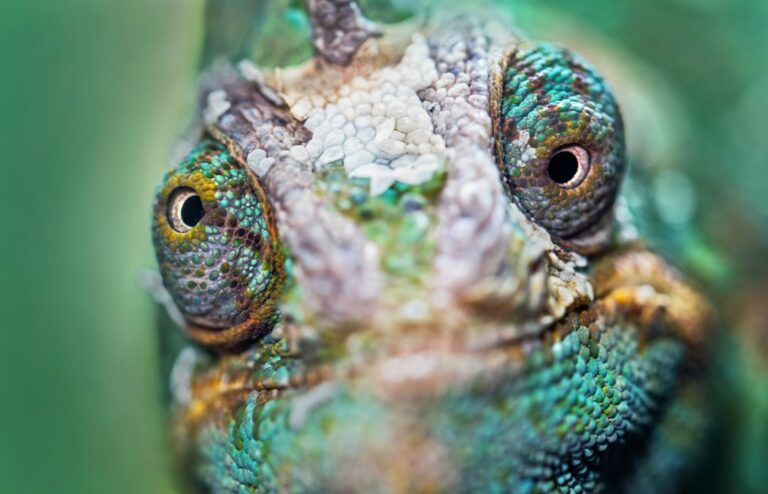Can Chameleons Eat Orchids?
Chameleons are fascinating creatures known for their ability to change color and blend into their surroundings. They are native to Africa, Madagascar, and parts of Asia and are highly adaptable to various environments. Chameleons are insectivores, meaning they primarily eat insects as their main source of nutrition. However, it is important for chameleons to have a balanced diet that includes a variety of foods to ensure they receive all the necessary nutrients.
Orchids, on the other hand, are a diverse group of flowering plants that are known for their beauty and unique shapes. They come in a wide range of colors and patterns and are highly sought after by plant enthusiasts. Orchids are found in almost every habitat around the world, from rainforests to deserts. While they are primarily grown for their aesthetic value, some orchid species have been used as a food source in certain cultures.
Table of Contents
What Do Chameleons Normally Eat?
In the wild, chameleons primarily feed on insects such as crickets, grasshoppers, and flies. They have long, sticky tongues that they use to catch their prey. Chameleons are sit-and-wait predators, meaning they will patiently wait for their prey to come within striking distance before launching their tongue to capture it. In addition to insects, chameleons may also consume small vertebrates such as lizards and birds.
In captivity, chameleons are commonly fed a diet of gut-loaded insects, which means the insects are fed a nutritious diet before being fed to the chameleon. This ensures that the chameleon receives all the necessary nutrients from its food. Some common insects fed to captive chameleons include crickets, mealworms, waxworms, and roaches. It is important to vary the diet of captive chameleons to ensure they receive a wide range of nutrients.
Nutritional Value of Orchids
While chameleons primarily eat insects, they can also benefit from the nutritional value of certain plants. Orchids, in particular, have been found to be a good source of nutrition for chameleons. Orchids contain a variety of vitamins and minerals that are beneficial for chameleon health. They are rich in antioxidants, which help protect the body against free radicals and oxidative stress. Orchids also contain fiber, which aids in digestion and helps maintain a healthy gut.
Orchids are also a good source of hydration for chameleons. Chameleons obtain most of their water from the insects they eat, but they can also drink water droplets that collect on leaves. Orchids have large, fleshy leaves that can hold water droplets, providing an additional source of hydration for chameleons. This is especially beneficial in dry environments where water may be scarce.
Can Chameleons Digest Orchids?
Chameleons have a unique digestive system that allows them to break down and absorb nutrients from their food efficiently. They have a specialized stomach called the gizzard, which contains muscular walls that help grind up food. This allows chameleons to digest tough insect exoskeletons and extract as many nutrients as possible.
While chameleons are primarily insectivores, they can also consume plant matter to supplement their diet. However, not all plants are easily digestible for chameleons. Some plants contain compounds that are difficult for chameleons to break down and may cause digestive issues. It is important to carefully select plants that are safe and easily digestible for chameleons.
Potential Risks of Feeding Orchids to Chameleons
While orchids can provide nutritional benefits for chameleons, there are also potential risks associated with feeding them to chameleons. Some orchid species contain toxic compounds that can be harmful to chameleons if ingested. It is important to research the specific orchid species before feeding them to chameleons to ensure they are safe.
In addition, chameleons may have individual sensitivities or allergies to certain plants, including orchids. It is important to monitor the chameleon’s health and behavior after introducing orchids into their diet. If any adverse reactions occur, such as vomiting or diarrhea, it is best to discontinue feeding orchids and consult a veterinarian.
How to Safely Introduce Orchids into a Chameleon’s Diet
If you decide to introduce orchids into your chameleon’s diet, it is important to do so gradually and carefully. Start by offering small pieces of orchid leaves or flowers and observe how your chameleon reacts. If they show interest and consume the orchid, you can gradually increase the amount over time.
Monitor your chameleon’s health and behavior closely after introducing orchids into their diet. Look for any signs of digestive issues or adverse reactions. If any problems arise, discontinue feeding orchids and consult a veterinarian for further guidance.
Other Plants that Chameleons Can Safely Eat
If you are hesitant about feeding orchids to your chameleon, there are other plants that are safe and beneficial for them to consume. Some examples include dandelion greens, hibiscus flowers, and mulberry leaves. These plants provide a variety of nutrients and can be a good addition to a chameleon’s diet.
Dandelion greens are rich in vitamins A, C, and K, as well as calcium and iron. Hibiscus flowers are high in antioxidants and can provide hydration for chameleons. Mulberry leaves are a good source of fiber and contain vitamins A and C.
Tips for Feeding Chameleons a Balanced Diet
To ensure that your chameleon receives a balanced diet, it is important to provide a variety of foods. This includes a mix of gut-loaded insects, safe plants, and occasional treats such as fruit or vegetables. Varying the diet will help ensure that your chameleon receives all the necessary nutrients.
It is also important to provide proper supplementation for your chameleon. Chameleons require calcium and vitamin D3 to maintain healthy bones and prevent metabolic bone disease. Dusting their food with a calcium supplement and providing access to UVB lighting can help meet these nutritional needs.
Common Misconceptions about Chameleons and Orchids
There are several common misconceptions about chameleons and orchids that should be addressed. One misconception is that chameleons can survive solely on a diet of orchids. While orchids can provide some nutritional benefits, they should not be the sole source of nutrition for chameleons. Chameleons require a varied diet that includes insects and other plant matter to meet their nutritional needs.
Another misconception is that all orchids are toxic to chameleons. While some orchid species do contain toxic compounds, not all orchids are harmful to chameleons. It is important to research the specific orchid species before feeding them to chameleons to ensure they are safe.
Orchids as a Supplemental Food Source for Chameleons
In conclusion, while chameleons primarily eat insects, they can benefit from the nutritional value of certain plants such as orchids. Orchids provide vitamins, minerals, and hydration for chameleons. However, it is important to carefully select safe orchid species and introduce them into a chameleon’s diet gradually.
Feeding chameleons a balanced diet is crucial for their overall health and well-being. In addition to orchids, there are other safe plants that chameleons can consume to supplement their diet. It is important to provide a variety of foods and proper supplementation to ensure that chameleons receive all the necessary nutrients. By doing so, you can help your chameleon thrive and live a long and healthy life.
If you’re interested in learning more about reptile nutrition, you might also enjoy reading the article “Do Iguanas Need Calcium Powder?” Calcium is an essential nutrient for reptiles, including iguanas, as it helps support their bone health and overall well-being. This informative article discusses the importance of calcium supplementation for iguanas and provides helpful tips on how to incorporate it into their diet. To find out more, click here.


